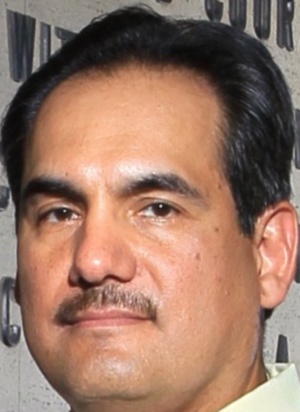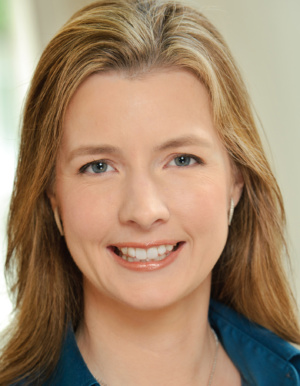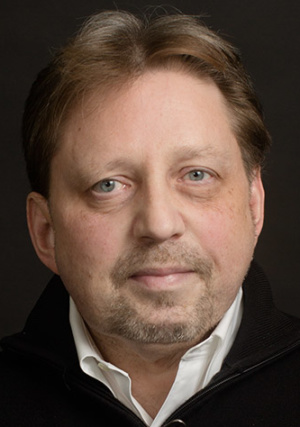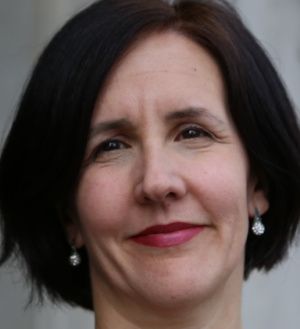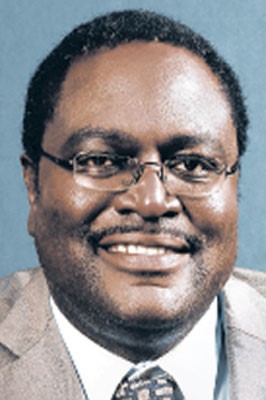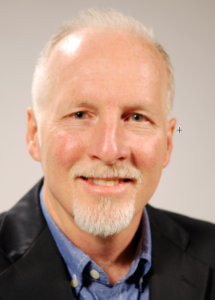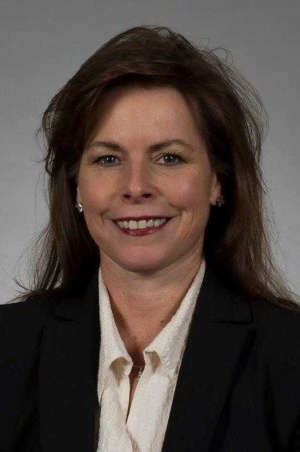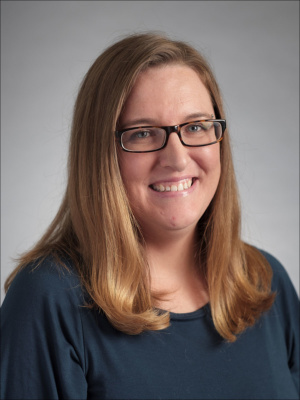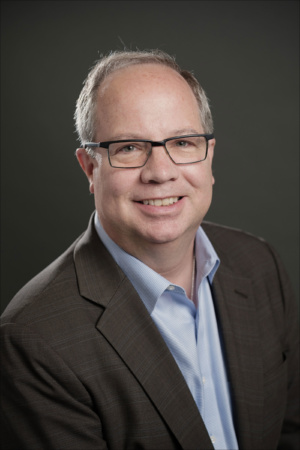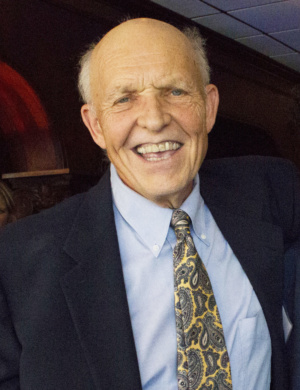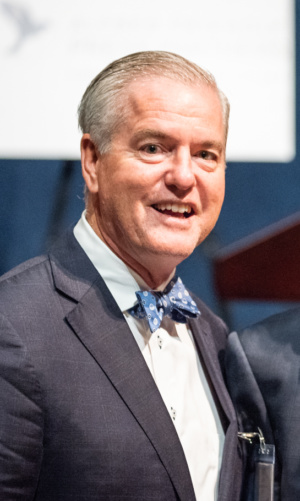History
The Alfred Friendly Press Fellowships were born in a goose blind on Maryland’s Eastern Shore in the winter of 1983.
Waiting for the geese to come in range, Alfred Friendly, the Pulitzer-Prize winning Washington Post journalist, started talking with his son, Jonathan, about his desire to “do something” for the profession that had been so good to him. He said he wanted to set up a small foundation but wasn’t yet sure what it should do.
Jonathan, then a reporter for The New York Times covering the press in America, pointed out the then-current discussion in the United Nations Educational, Scientific and Cultural Organization (UNESCO) about a “New World Information Order.” Both men agreed that the label was, in many instances, a thinly disguised excuse for censorship by dictators who didn’t want Western news agencies reporting on their oppressive ways. But they also agreed that the Western press had notably failed to offer a helping hand to journalists in what were then called “developing countries.”
Al and his wife Jean were widely traveled and deeply interested in the world outside the United States. They also had a lifelong commitment to education.
What emerged was a unique program, centered on training journalists in US newsrooms, a direct professional-to-professional experience that didn’t depend on governments or other outside agencies.
Within months, Al, though dying of cancer, established the foundation that bears his and Jean’s name and hired an executive director for a program he named the International Press Fellowships. The director, David Nalle, was a retired USIA Middle East specialist who shared Al’s belief in the responsibility of the West to assist nations emerging from colonialism.
Joined in Washington by Al’s eldest son, Alfred Jr., they set about defining a program, advertising for applications and lining up newspapers to serve for six months as hosts to the ambitious young journalists. Within months, they had put all the essentials in place for a group of a dozen fellows who would arrive the following spring.
Sadly, Al did not live long enough to meet that first class. He died in November of 1983, just shy of his 72nd birthday.
When the first class of fellows arrived in 1984 to spend two weeks in Washington and then five and half months working at newspapers and news magazines around the country, it was a fairly prosperous time for the newspaper industry. News giants such as James Naughton of The Philadelphia Inquirer, Tom Winship of the Boston Globe, Ben Bradlee and Len Downie of The Washington Post and Burl Osborne of The Dallas Morning News welcomed the fellows to their newsrooms.
Even smaller papers joined up; Brandy Ayers’ Anniston (Ala.) Star was a fine example of the commitment to a forward-looking international effort. Al’s guiding principle that journalism was better learned on the job than in the classroom had come to fruition.
While reporting overseas, Al found that many American readers – and some journalists, too – needed to see how international events large and small connected to their own. Nepali journalist Bijay Lal Shresta, found connections between Anniston, Ala., and Kathmandu, Nepal. It was a two-way street. Both sides benefited – the journalists who came and those who mentored and worked with them.
After the fall of the Berlin Wall in 1989, the program, under Nalle’s successor, Susan Talalay, began to recruit fellows from Eastern and Central Europe. Many of these returned home and become stringers for U.S. publications. Jasmina Kuzmanovic was back in the former Yugoslavia during the siege of Sarajevo and provided reports to her host newspapers, USA Today and the Nashville Tennessean.
In these years U.S. newspapers were financially stretched; many were closing overseas bureaus. The Friendly Fellows were filling a void. The program was building momentum.
As needs changed, some fellows focused primarily on a single beat, such as business or science, but for the first 10 years, the majority of fellows would be placed at different departments at their host newspapers to learn how to cover a variety subjects and improve their overall journalism skills.
In the last decade the program has expanded its training to include computer-assisted reporting and digital reporting. More changes are on the way with the Alfred Friendly Press Partners emphasis on continuing relationships with the most ambitious newsrooms around the developing world.
The geese got away that morning in Maryland, but the idea that was hatched there remains as vital and useful as ever.
Program Evolution
The Program Evolves Step-by-Step
Over its 35-year history, the Alfred Friendly Fellowships have sought to improve the experience for our fellows, for the international newsrooms that send them and for the U.S. newsrooms that host them.
It began with the simple premise that journalists are pretty much alike all over the world. So the goal was to let aspiring reporters from developing nations work in print newsrooms in the U.S. for six months. With guidance from their hosts, the reporters were to “learn how we do it here” and apply the lessons learned when they went home.
For that first decade, it worked pretty well. The fellows were self-selecting strivers who could generally adapt quickly to their new surroundings and become contributors to the daily news process.
Ethics Training
But it also became clear that many of the fellows had to struggle because they did not always have a firm grounding in newsroom practices, particularly in some ethical issues. To meet this need, the program developed its Newsroom 101 program, a week of intensive journalist training and media skills courses before the fellows went to their host newsrooms.
Mentoring the Mentors
It also turned out that fellows did best when they could develop close ties with a “mentor,” usually an editor who could acquaint them with the practices specific to the host newsroom.
New Curriculum
In its first decade, an advisory board made up primarily of Friendly family members and representatives of host newsrooms selected our fellows from scores and then hundreds of applicants. In the last decade that board has become more active in defining what skills and practices fellows need to learn. A “curriculum” came together when the fellows mid-term meeting expanded into a week-long formal learning session – first at the Poynter Institute in St. Petersburg, Fla., and now at the University of Missouri in Columbia.
Fellows learned how to write more effectively, how to use Internet research tools, how to shoot and edit video and how to incorporate news ethics and other important skills. And, responding to a frustration voiced by past fellows, they were taught in how to share what they had learned when they went home.
Setting a New Course
For the first two decades, Jean Friendly served as the head of the foundation board, which included her five children and some of their offspring as well. Alfred Jr. provided the day-to-day supervision, working closely with executive directors David Nalle, Susan Talalay, John Sirek and Susan Albrecht. His brother Jonathan took over those duties in 2003 and led the successful effort to remake the board with professionals from various disciplines.
In 2004, after 20 years of continuous operation, the program was halted for a year while Jonathan Friendly and Susan Albrecht travelled around the globe to meet with past Fellows and study how the developing world’s newsroom needs had changed since the program’s inception.
After visiting 50 alumni, potential applicants and newsroom executives in Beijing, Guangzhou, Hong Kong, Istanbul, Johannesburg, Lagos and New Delhi, they returned convinced of the need for a new program model, one that relies on long-term relationships with the international home newsrooms and one that recognizes how American newsrooms have changed with falling revenues and the addition of new digital media outlets. Randy Smith became Executive Director and President of the Board in 2013.
New Partnerships
Symbolic of the new direction is the partnership forged with the family of Daniel Pearl, the Wall Street Journal reporter slain in Pakistan in 2001. Two Pearl Fellows are selected each year in collaboration with the Pearl family; one comes from Pakistan and the other from a different Moslem country.
Another new partnership, this one with the National Media Group headquartered in Nairobi, has fellows chosen by their editors in Kenya and Uganda. The editors know the skills they want their Friendly fellows to learn in the U.S. and bring back to their newsrooms. Randy Smith and four other Kansas City Star staffers have served as trainers for National Media newsrooms in Kenya and Uganda.
In-Country Training
In 2004, alumni told us they wanted more in-country training, so the program sent Greg Victor from Pittsburgh to Bangladesh and sent John Ensslin from Denver to Cambodia for in-newsroom sessions.
Similar partnerships have begun with Korea’s premiere business news magazine, Money Today, and with the English-language China Today news service. The program also arranged and conducted journalism seminars in Beijing, Istanbul, and New Delhi for AFPF alumni and local journalists.
Funding
The foundation board also decided that it would also open the door for U.S. government support, a move that former Fellows assured us would not cast suspicion on the program. In 2011, the Friendly Fellows led a five-day training session in conflict-affected regions of Pakistan, working with the Pakistan Press Foundation, our local partner, and the American Embassy in Islamabad.
Moving Forward
With a new foundation board, a revitalized professional advisory board, a new executive director and a new program name – the Alfred Friendly Press Partners – the program will continue to seek new challenges while hewing to its initial inspiration as a bridge between journalists in the developing world and the United States.
David Nalle, Founding Executive Director
David Nalle was the founding executive director of the Alfred Friendly Press Partners from the start in 1983 until 1992. David was an effective leader for the Fellowships, and he continued to work with the organization even after he retired as executive director.
He died in August, 2013.
Founder awarded Pulitzer in 1968
Alfred Friendly was awarded the Pulitzer Prize for International Reporting in 1968 for his coverage of the Middle East War of 1967. After serving as managing editor of The Washington Post from 1955-1965, Friendly went to London to become the paper’s European, Middle East and African reporter. In 1967, Friendly dispatched exclusive reports from Tel Aviv to Washington, including the first eye-witness report of Israeli fighting on the Syrian front, and articles that revealed Soviet military participation and described the 36 hours before the war officially began.
The articles below highlight some of Alfred Friendly’s work and include coverage of the Six-Day War and its aftermath. A special thanks to Washingtonpost.Newsweek Interactive (WPNI) for allowing us to post this collection of articles.
1967
May 26, 1967: Israeli View: Jerusalem Fears Plot to Destroy the Nation
May 27, 1967: From Israel: Military Said to Expect Sudden Egyptian Attack
June 5, 1967: Israel Cabinet Hints Fear West Moves Too Slowly
June 6, 1967: Israeli Troops Quickly Cut Off Gaza Strip from Egypt
June 10, 1967: Nasser’s Reasoning; Information Seems Deficient
June 11, 1967: Flight Over Sinai Desert: Witness to Egypt’s Disaster
June 12, 1967: Truce Holds; Israel Lists Light Losses
June 15, 1967: 200,000 Jews Join Trek to Wailing Wall
June 17, 1967: Occupation Forces: Restoring Normal Life
June 24, 1967: The Arab Refugees: What Will They Really Do?
July 22, 1967: Arab Delusions: Peace is Remote, as Realities Are Ignored
July 23, 1967: The Strange Erasure of Arab Town
August 8, 1967: Israel’s Image: Agreement on Refugees
August 12, 1967: Trespassers in Israel: Hard Words, Soft Drinks Greet Newsmen
August 15, 1967: Economic and Human Problems Facing Israel on the West Bank
August 16, 1967: Big Question on the West Bank: Arabs’ Attitudes Toward Israel
August 19, 1967: The Israeli Image: How It Contrasts With America’s
August 27, 1967: Israel Simply Wants to Hold Its High Cards
1968
April 20, 1968: Words in the Middle East Valued More Than Deeds
April 27, 1968: Hussein’s Time Grows Short To Make a Peace With Israel
May 4, 1968: Israel Sees No Early Peace With Nasser Blocking Way
